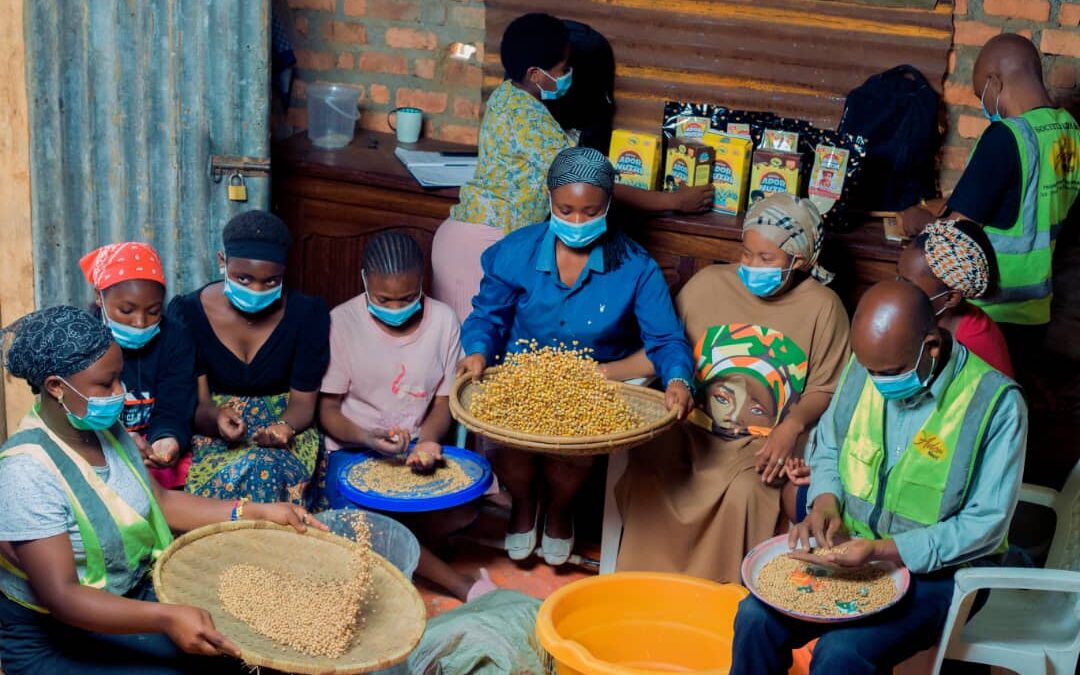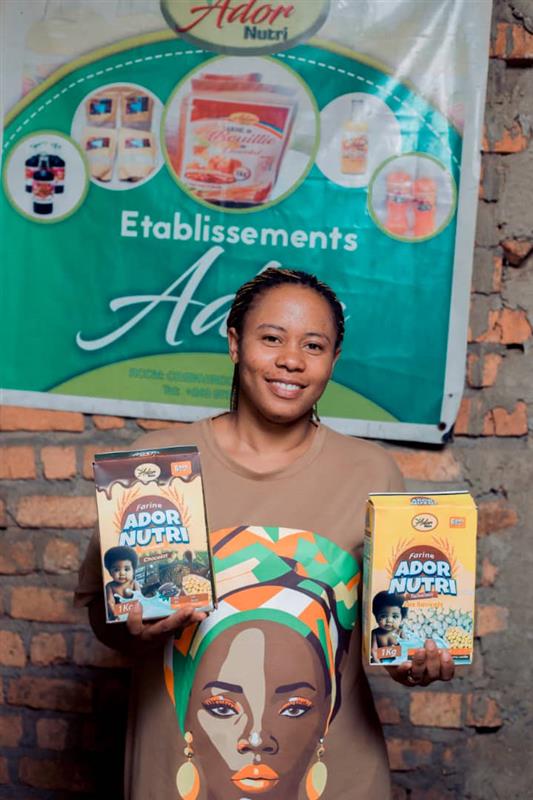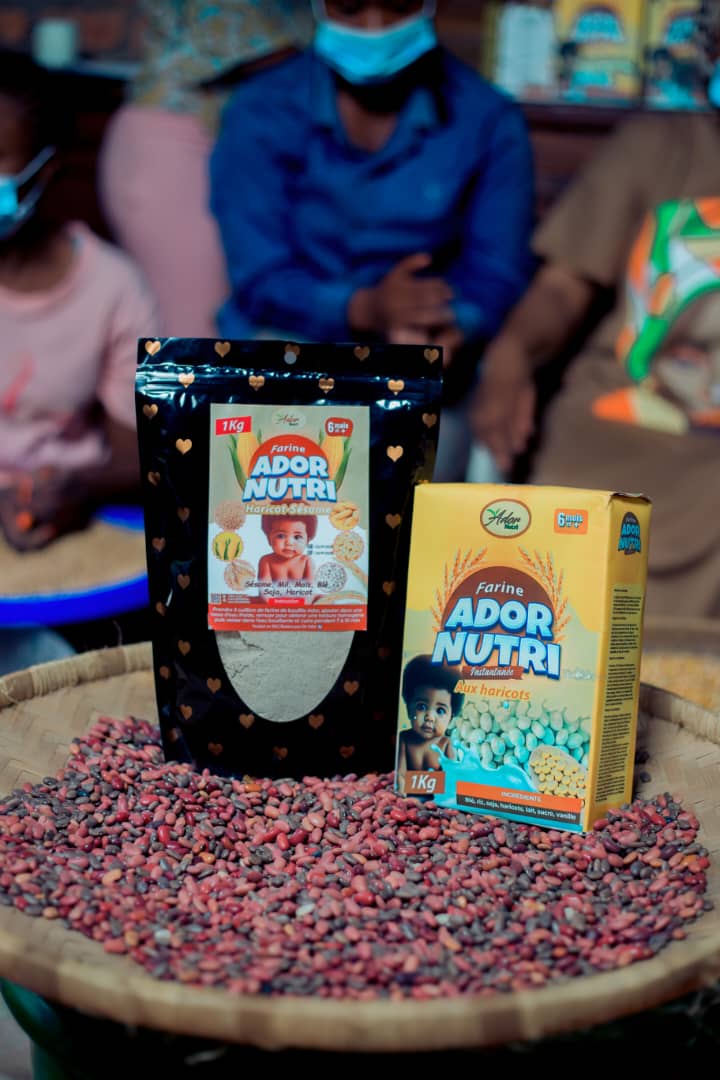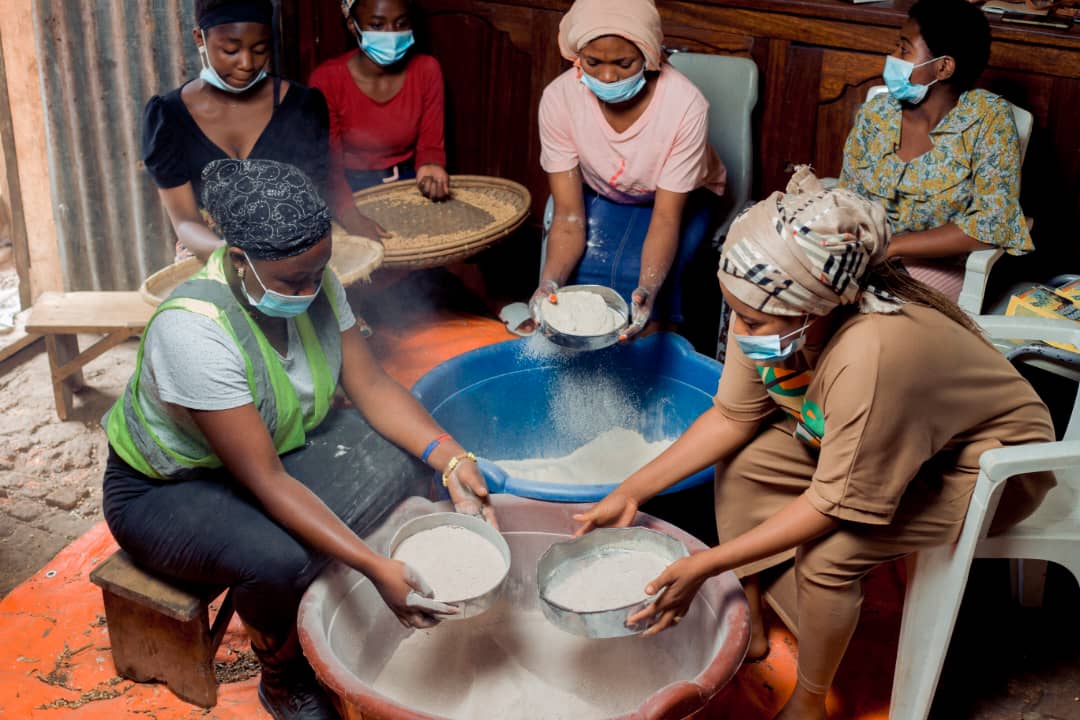By Napoleon Kajunju, Justice Munthali, Yohane Chideya, Paulin Njingulula, Eliud Birachi and Jean Claude Rubyogo
It all began in a modest kitchen in Bukavu, a vibrant city in eastern Democratic Republic of the Congo (DRC). There, Babunga Véronique Bienfaite started quietly experimenting with flour blends driven by a mother’s desperate love. Her son was failing to thrive, and after months of worry and seeking help, she discovered the heartbreaking truth: he was allergic to some ingredients in the traditional porridge, a dietary staple she had grown up with and trusted.
That moment did not just shatter her assumptions – it ignited a fierce resolve to reimagine the porridge flour she had always known. Véronique returned to her kitchen with renewed purpose, experimenting tirelessly with alternative grains and local ingredients. What began as a personal quest soon grew into a mission to create a nourishing, allergen-safe porridge, not just for her son, but for countless others facing similar struggles in her community.
“I was just a mother in a kitchen, trying everything to help my child survive,” she recalls. “I failed many times. But each failure only pushed me to keep going”.
A dream deferred, then reimagined
Véronique never set out to be a flour-based food entrepreneur. As a young girl, she dreamed of owning a palm oil refinery. Life had other plans. After working as an accountant in a mining company, she found herself unemployed when the company closed. To make ends meet, she began producing juice and porridge flour from home.
Her passion for flour formulation deepened when her son’s allergy forced her to rethink everything she knew about nutrition. She began experimenting, quietly and persistently, with new blends.
In 2022, during a routine hospital visit, Véronique’s resolve intensified. The sight of so many malnourished children shook her deeply.
“If I can find a way to nourish my child,” she vowed, “I will find a way to nourish others too.”
From kitchen trials to community transformation
Véronique’s early experiments were humble. She blended maize, rice, and soybeans, even tried caterpillar powder, anything that might add nutritional value. But without formal training or guidance, progress was slow, and setbacks frequented. Still, she kept going, fueled by a mother’s instinct and a deeper sense of mission.
In 2024, Véronique reached a turning point when she joined the incubation program at ORHEOL – a Bukavu-based entrepreneurship hub that supports young innovators from idea to launch. There, she learned to sharpen her focus and streamline her efforts, zeroing in on a single flagship product: a nutritious porridge flour. But sourcing insects, a key protein component, remained a costly and unreliable challenge. Then came a breakthrough.
Beans: The unsung heroes of her recipe
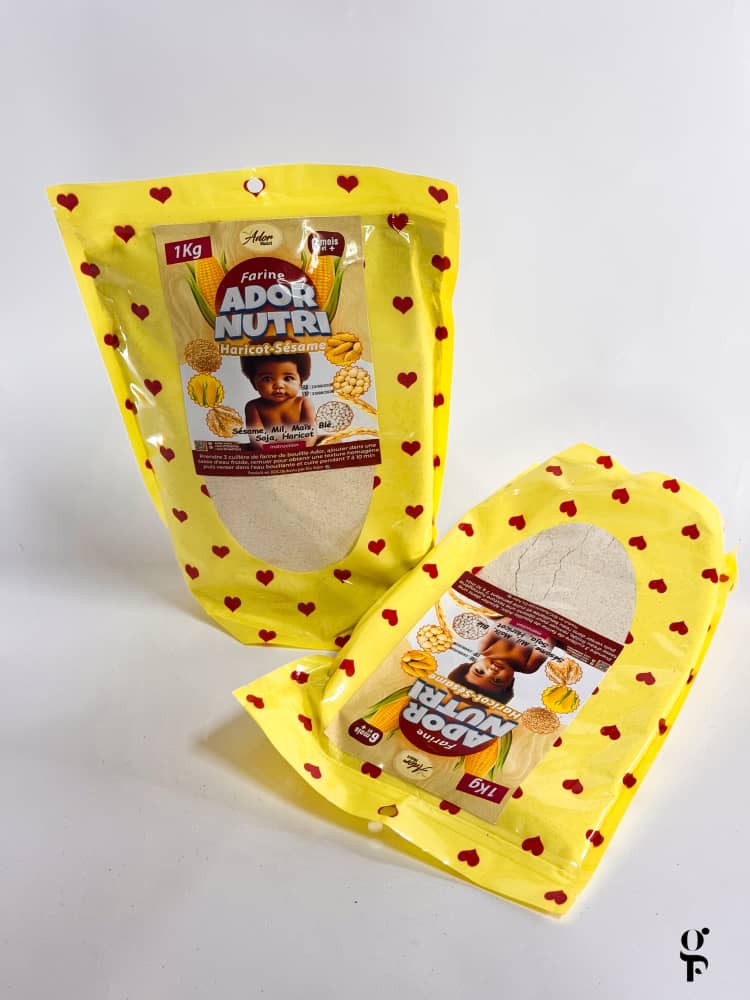
(Above) Véronique with Alliance Nutritionist Justice Munthali; (Below) blended flours produced by her brands, ADOR and NUTRI
A training by Pan-Africa Bean Research Alliance (PABRA) of the Alliance of Bioversity International and CIAT, in partnership with the Evangelical University in Africa and the Catholic University of Bukavu, introduced Véronique to the incredible potential of beans. Packed with protein, iron, and fiber, beans were more than just affordable, they were powerful allies in the fight against “hidden hunger,” the kind that stunts growth and dulls potential without always being visible.
With support from the B4WE and PICAGL Projects, Véronique learned to process beans into flour, enrich them with maize and other ingredients, and apply rigorous hygiene and food safety standards. She also learned about branding, packaging, and marketing, a game-changer for someone who once sold her porridge wrapped in simple kaki paper. A week after the training, she managed to develop a new prototype of bean-enriched flour. It was not just good, it was effective, affordable, and most importantly, embraced by local mothers.
Scaling impact
When she first rolled out in full throttle in 2023, Véronique produced 80 kilograms of flour per month. But after receiving specialized training in June 2024, she nearly quadrupled her output to 300 kilograms a month by incorporating beans into her formula. By 2025, production had doubled again to 600 kilograms monthly, now with improved packaging and branding. Impressively, 75% of that is sold within the same month, reflecting the remarkable growth she has achieved in two years.
Today, her ADOR NUTRI brand stands as a beacon of hope. Her products comprised of bean, peanut, sesame, and chocolate porridge flours, are sold in five major Bukavu supermarkets of Amigo, La Beauté, City Market, Le Top, and Le Mikado, over ten neighborhood shops, and even a pharmacy. Her team, made up mostly of women, includes ambassadors who promote the products door-to-door and on platforms like WhatsApp and Facebook.
Packaging now features kraft paper with professional logos and nutritional information. This isn’t just porridge, it’s purpose in a packet.
She’s currently in a testing phase, gathering customer feedback, optimizing production costs, and seeking national certification from the Office Congolais de Contrôle, – a step toward broader market trust and expansion.
Growing with purpose
ADOR NUTRI employs 10 people, eight women of whom are women. Their ingredients are sourced through a robust, women-led supply chain from local markets in Goma and Bukavu. Monthly production is scaling, and sales are rising. Yet, Véronique dreams bigger: transitioning from manual to semi-industrial production, aiming to meet not just local, but international demand.
She’s already thinking sustainably. Edible by-products are used for biscuit-making; non-edibles become livestock feed. Nothing is wasted. Every part of the process is infused with purpose, economic, nutritional, and environmental.
Today’s porridge, tomorrow’s hope
For Véronique, this isn’t just business, it’s personal. Every packet of porridge is a stand against malnutrition. Every scoop is a mother’s silent promise: I will not let another child go hungry the way mine almost did.
She believes her success is not hers alone. With continued support from programs like PABRA under CIAT, and by equipping women with skills and networks, she envisions a South Kivu where children grow strong, mothers grow confident, and communities thrive.
“With the right training and support, I found the strength to turn my struggle into a solution for my community. Beans can be very beneficial in a baby’s diet, including in porridge form, if they are well prepared, in recommended proportions, and processed under proper hygiene standards, just as we do at ADOR Nutri,” she added.
Véronique did not set out to become a food innovator. She simply refused to let struggle define her story. And in doing so, she’s turned her kitchen into a lab, her flour into medicine, and her dream into a movement.

